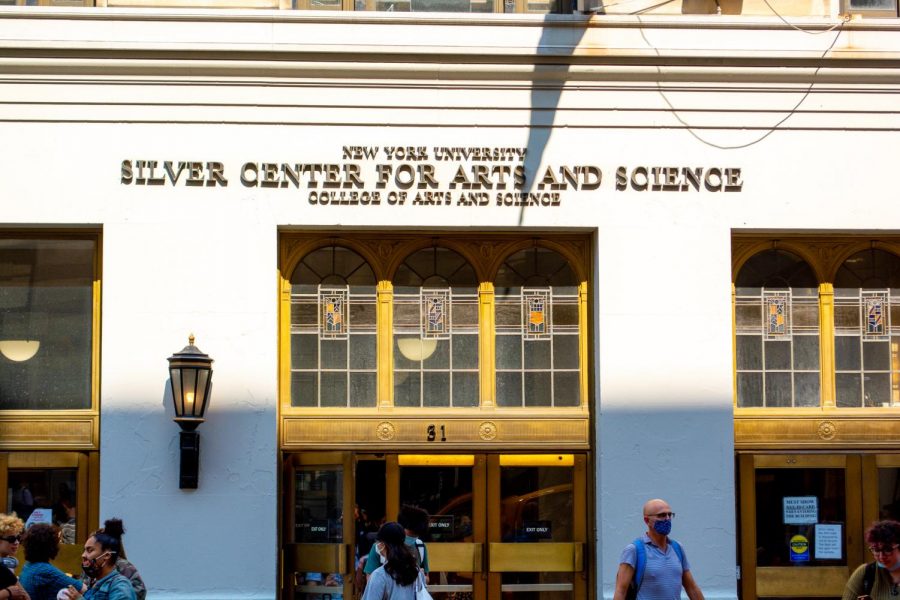During my first two years of college, I spent countless hours reading philosophical texts, writing pages after pages of essays, making sense of equations and memorizing names, dates and titles of artworks. But by the end of those late night cram sessions, what did I truly learn? Not even enough to explain it to you, that’s for sure.
The College Core Curriculum at NYU, also known as College of Arts and Science Core, consists of five parts: the First-Year Seminars, Expository Writing Program, Foreign Language, Foundations of Contemporary Culture and Foundations of Scientific Inquiry. While the number of classes that students have to take depends on their majors and transfer credits, students typically have to complete 10-15 classes in total.
NYU claims on its website that the goal of these core classes is to help students “flourish in their major programs of study and in their later careers.”
Xuan Cao, a CAS junior studying economics, said that some of these courses didn’t benefit her academic pursuits.
“Students usually opt for easy courses,” Cao said. “When our intention is to take easy courses to get an A, we typically won’t learn much from them.”
As a Journalism and International Relations major, this was exactly the mindset I had going into these classes. These courses have never helped me to explore my desired area of study. Taking department-specific introductory classes, on the other hand, was the avenue by which I discovered my major.
Once I had a specific career path in mind, it was frustrating to spend a large portion of my time on subjects that seemed irrelevant to my goals. Moreover, because so many students have to fulfill these requirements, the more interesting classes fill up the fastest, often leaving me with options that didn’t align with my interests by the time I registered and ultimately, drained my motivation to learn.
Cao suggested that Texts and Ideas, which falls under Foundations of Contemporary Culture, should be removed because it’s focused on philosophical content that doesn’t align with many students’ interests. Additionally, requiring students to take foreign language courses through the beginning to intermediate level might not amount to proficiency in the language.
“Learning a new language takes a long time, and we won’t learn much from two semesters of language classes,” Cao said. “Since it’s a strict requirement, people find it painful to learn and lose interest in the language.”
However, Cao also said that Expository Writing classes are essential to developing foundational skills, and that some Foundations of Contemporary Culture and Foundations of Scientific Inquiry courses could help students explore areas of interest. Steinhardt junior Yoon Seo Cho agreed, expressing that they required close reading skills through these classes.
Though Cho didn’t see a reason to take Foundations of Scientific Inquiry as it’s unrelated to her major, she was glad that STEM classes gave her a chance to take a breather from her text-based classes.
“It was a good balance,” Cho said. “I was able to manage those science classes along with my reading-heavy classes.”
The amount of CAS core classes that students should take is, of course, subject to interpretation based on different individuals. I am not suggesting that NYU should eliminate all CAS core classes, because I was able to learn about content I wouldn’t have been able to otherwise. For example, I was able to explore the significance behind historical architectures through two research papers that I had to write for my Expressive Culture class.
Some classes, however, should be taken off the list. As a Journalism and International Relations major, why do I need to take three Foundations of Scientific Inquiry classes that are completely irrelevant to my majors?
It’s clear that some core classes are indeed beneficial for instilling a diverse understanding of academic study in some areas. That being said, it’s also clear that the sheer amount of core requirements and the wide variety of subjects required are not applicable to all students, and will serve to confuse rather than help them throughout their academic journey. Through that lens, it seems like there’s still a broad necessity to reduce these core classes and refine the list of classes that will foster cross-disciplinary understanding — one of NYU’s proclaimed principles.
WSN’s Opinion section strives to publish ideas worth discussing. The views presented in the Opinion section are solely the views of the writer.
Contact Amanda Chen at [email protected].























































































































































